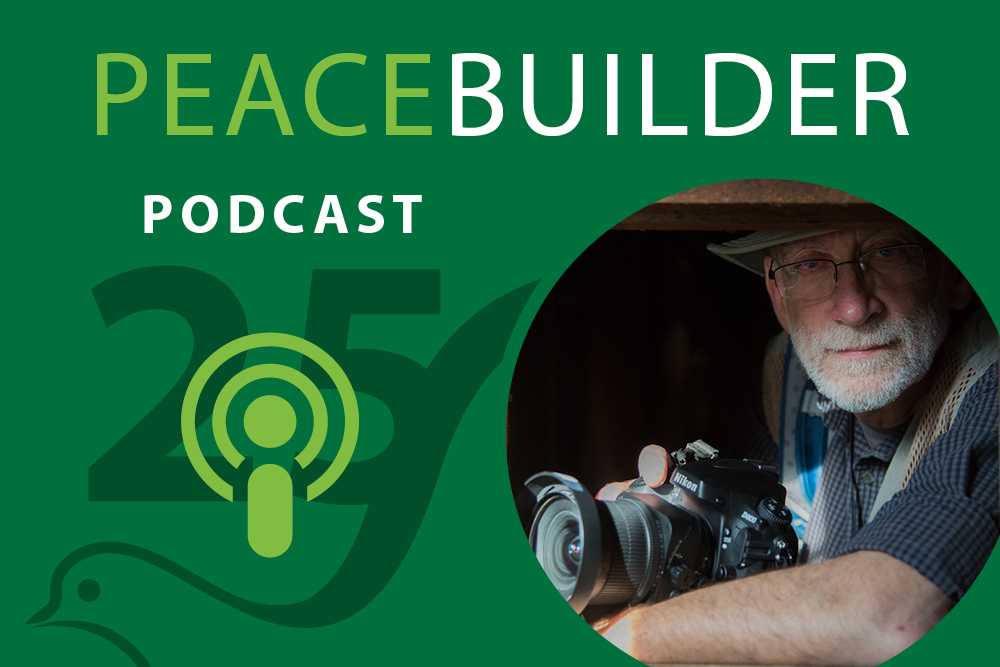Howard Zehr – director emeritus of the Zehr Institute for Restorative Justice and a distinguished professor of restorative justice at the Center for Justice and Peacebuilding (CJP) – is the ninth guest of the Peacebuilder podcast. In the episode, Zehr talks about his path to victim-offender conferencing as a young practitioner, the early days of restorative justice, and where he sees the field going from here.
The podcast is just one of the ways the center is celebrating its 25-year anniversary. Hosted by CJP executive assistant and anniversary celebration committee chair Patience Kamau MA ‘17, the 10-episode series features faculty and staff members reflecting on the history of CJP and their own peacebuilding work. A new episode drops every other week on the Peacebuilder website.
One of Zehr’s formative experiences as a young adult was attending Morehouse College, a historically black men’s college in Atlanta. He was confronted with being part of a “minority” as one of the few white students in attendance.
“People just didn’t read me the way I was used to being read. My body language, what I said was interpreted totally different[ly],” Zehr recalls. “It was a profound experience and not an easy one.”
It was in the 1970s, while teaching at another historically black institution, Talladega College in Alabama, when Zehr started working with the criminal justice system. He provided support to prisoners and trained student research teams “to help defense attorneys pick juries in really highly politicized cases: death penalty, prison riots, police brutality.”
In 1985, Zehr published the booklet Retributive Justice, Restorative Justice, followed by Changing Lenses in 1990, a seminal work in Zehr’s own career and the field at large. He joined CJP in 1996, at the urging of Professor Ray Gingerich and Director Vernon Jantzi.
“My self concept is basically a journalist of justice,” Zehr says – communication and networking are foundational to his work. The whole reason he launched the Little Books of Justice and Peacebuilding series was to make the core concepts of CJP accessible to a wider audience.
Zehr pitched the first title, The Little Book of Restorative Justice, to his publisher saying, “I want it to cost about the same as a Big Mac dinner.” Over 100,000 copies of the book have now been sold in a variety of languages.
What does he celebrate most about CJP? “We’re still, as far as I know, the only academic program with a practice, a reflective practitioner value-based kind of approach. Which is what we set out to be.”
Looking forward another 25 years, Zehr says he likes where he sees the next generation going.
“That’s partly why I’m staying out of it,” he says. “A lot of them have a much wider vision about applications – to historical harms, to social injustices – but I don’t want us to lose also some of our focus on things like bringing those who are harmed and those who caused harm in the context of a criminal system together as well … I hope we can hold those things together.”
